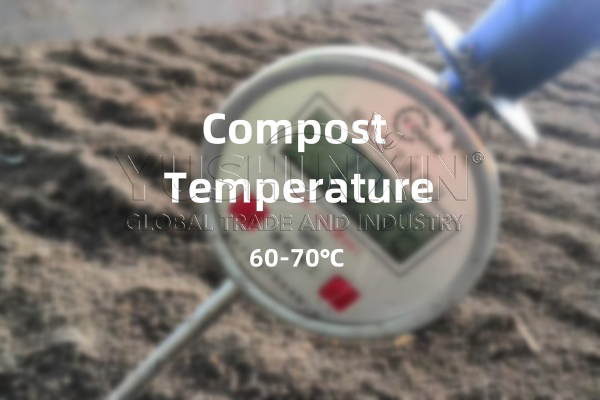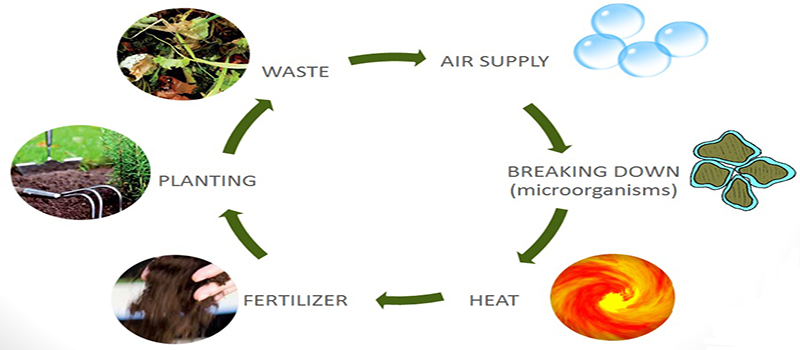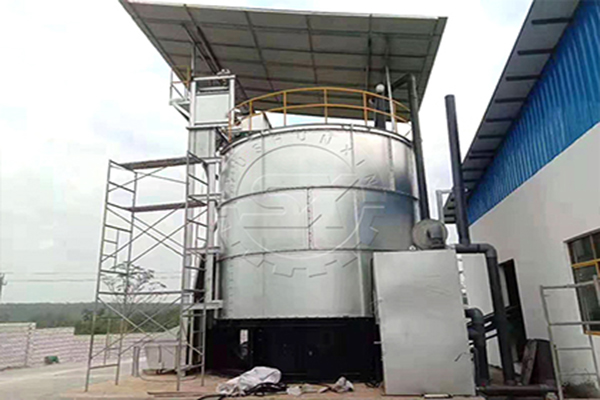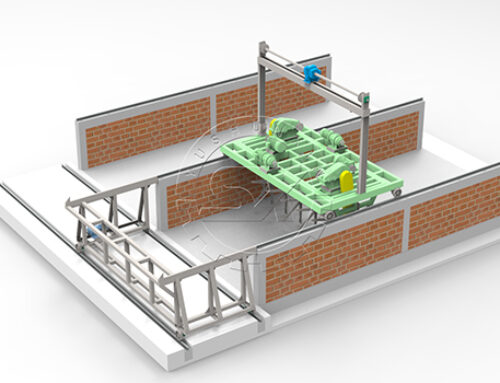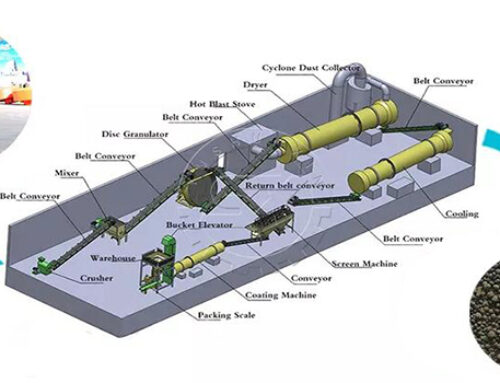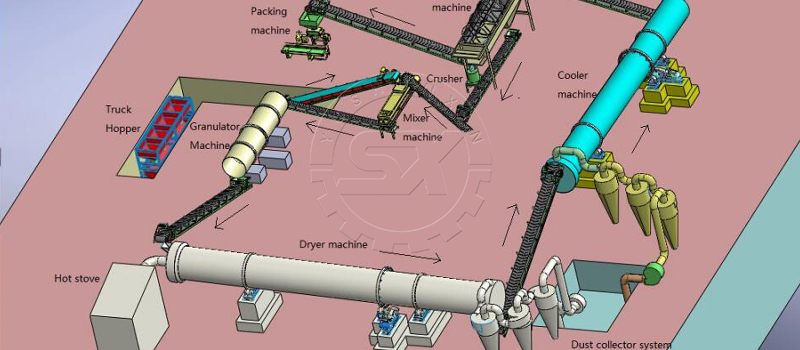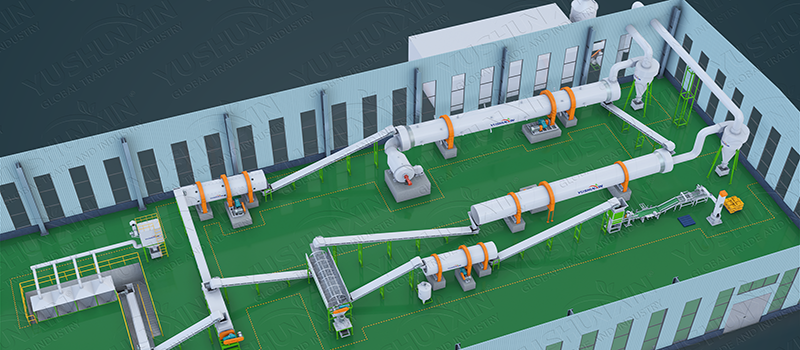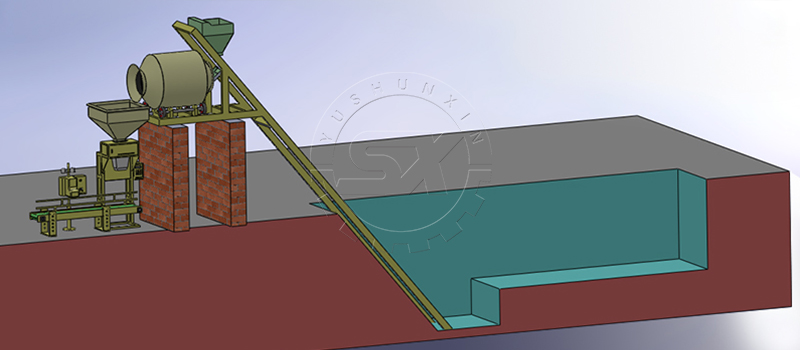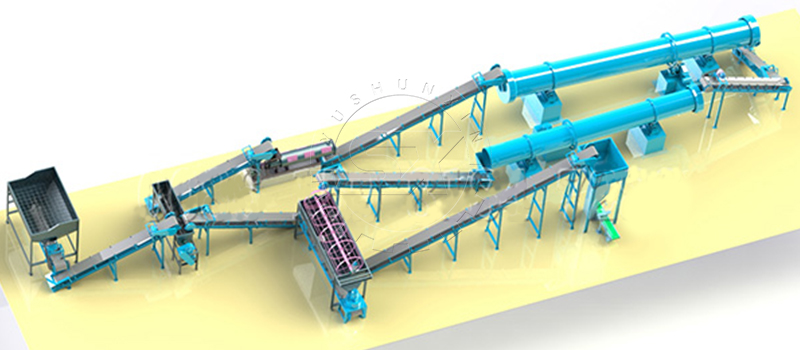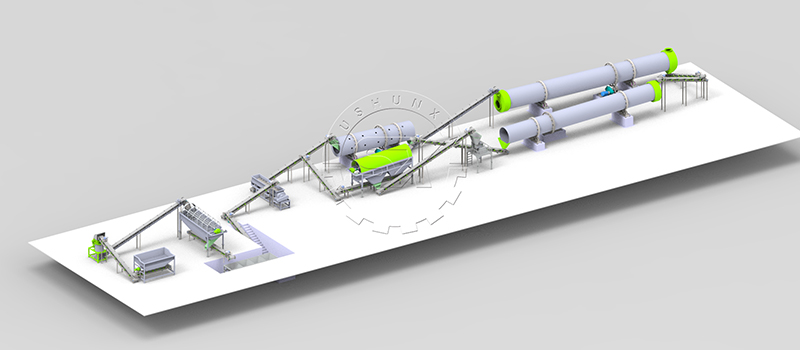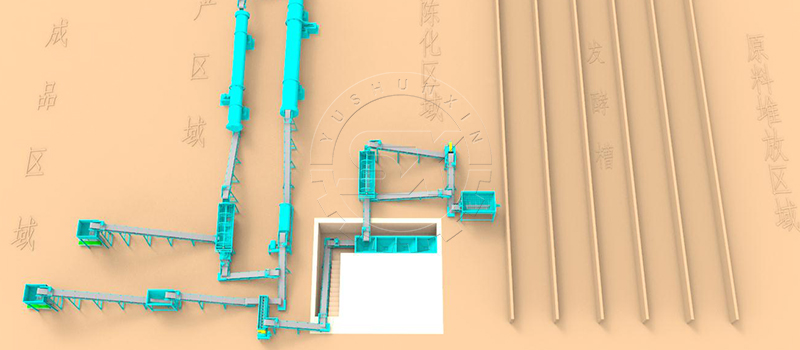Composting is an environmentally friendly method to recycle organic waste into nutrient-rich soil amendments. One of the key factors in the fertilizer composting process is temperature. It greatly influences the rate of decomposition and the quality of the final product. Composting machines, whether small-scale for home use or large-scale for industrial fertilizer fermentation, is to control fertilizer composting temperature between 60°C to 70°C (140°F to 158°F).
Why the temperature is important for organic fertilizer making?
Composting microbial inoculant
As the name suggests, composting microbial inoculant is widely used in bio fertilizer composting process. It is beneficial for facilitating manure composting and eliminating the odor of animal manure. And commonly, this microbial agent is a kind of complex bacteria. Including photosynthetic bacteria, lactic acid bacteria, yeast, actinomycetes, penicillium, trichoderma, etc.
3 Main temperature phases in fertilizer composting
There are three main temperature phases in composting: the mesophilic, thermophilic, and maturation phases.
The mesophilic phase occurs at the onset, where temperatures range from 20°C to 60°C (68°F to 140°F). Here, common bacteria begin the decomposition process and multiply rapidly, raising the compost’s temperature.
As the temperature climbs, the composting machine enters the thermophilic phase. In this process, fertilizer composting temperature is between 60°C to 70°C (140°F to 158°F). This is the most critical phase for pathogen and weed seed destruction. The high temperatures are sustained by thermophilic bacteria, which are more efficient at decomposing complex organic materials like fats, proteins, and cellulose.
Cooling phase
After the thermophilic phase, the compost gradually cools down. And the fertilizer composting enters the maturation phase. Here, the temperature will slowly decrease and eventually stabilize near ambient temperatures. During maturation, the composting process slows, and the microorganisms work on refining the compost into a stable, humus-like material.
How to control the fertilizer fermentation temperature freely?
For large-scale manure disposal and organic fertilizer making operations, automated composting machines are invaluable. They can adjust aeration, moisture levels, and turning frequency based on temperature readings, maintaining an ideal environment for composting without constant human intervention. It is in-vessel fermentation tank.
What other items need to focus on for compost manure quickly?
In conclusion, temperature is a pivotal factor in the composting process, and composting machines are designed to foster the ideal thermal conditions for efficient organic waste decomposition. By understanding and controlling temperature, these machines can maximize compost quality, accelerate the composting process, and play a significant role in sustainable waste management.

